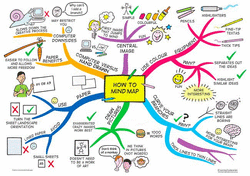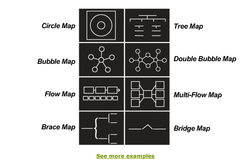
Using pictures and videos in your maps, through programs like Inspiration, can make your maps clickable and even more useful.
When I taught in Eagle Pass, I was a Thinking Maps trainer. Different types of maps could be used to show different ways of thinking about concepts. Some of the benefits of thinking maps:
- Students learn more effectively and more efficiently
- Objectives are covered in less time with greater retention
- Thought processes are represented similarly throughout the curricula
- Schools also promote integrated thinking and interdisciplinary learning
- Teachers can easily gauge student knowledge prior to a specific lesson
- Student performance can be tracked accurately over time
- Students gain effective tools to use across their academic career




 RSS Feed
RSS Feed
